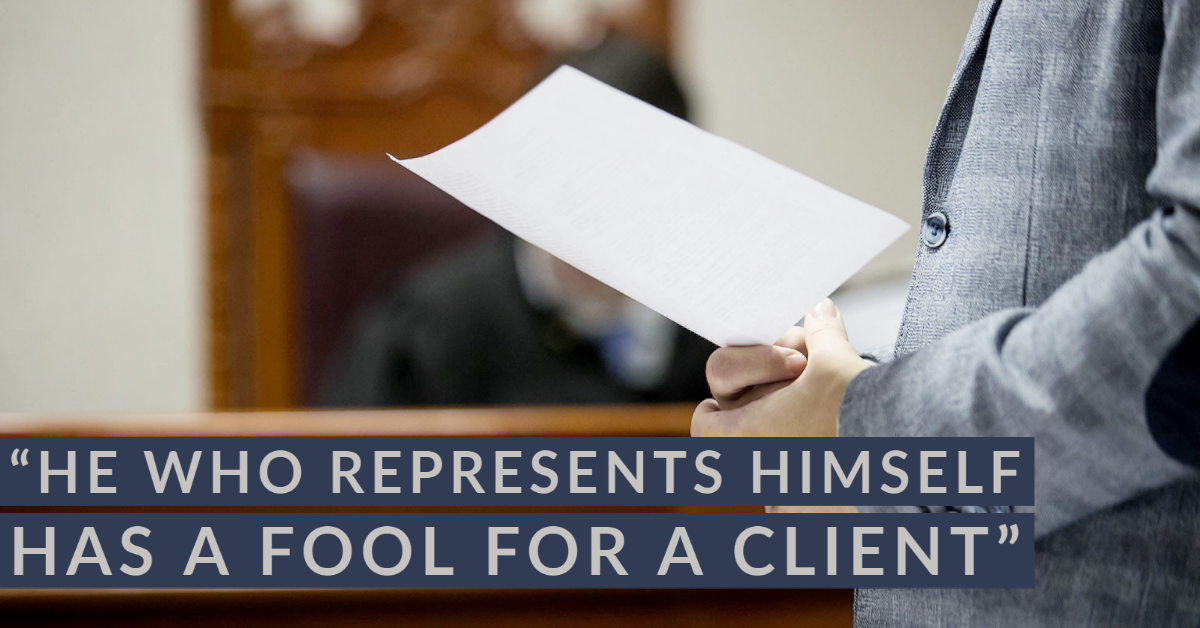“He Who Represents Himself has a Fool for a Client”
Representing yourself in court is usually a bad idea. Sometimes it’s because you, the litigant, are too close emotionally to the issue to make objective decisions about strategy. But often the most immediate problem is that most non-lawyers are not trained or experienced in the rules of what evidence may be presented in court, and how it can be presented. If you cannot get your evidence in front of the judge, you have no way to win your case. The Tennessee Court of Appeals just ruled on yet another case where both reasons applied: Matthews v. UPS Store Center 3138. The

